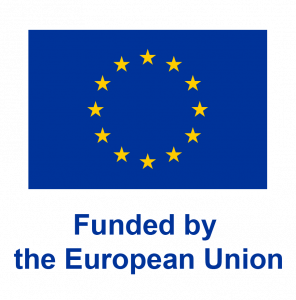
Official project page: Home | MOCCA (lu.se)
Start date – End date: 1.1.2023-31.12.2026
Coordinator: Dr. Rustam Urinboyev, Lund University
Funded under: H2021 MSCA-RISE (research and staff exchange program, project number 101085855
Overall budget/EU contribution: €1,656,000
Abstract
The MOCCA intends to contribute to the global and national efforts of understanding and counteracting corruption by conducting interdisciplinary research on the multilevel orders of corruption in five countries in post-Soviet Central Asia (Kazakhstan, Kyrgyzstan, Tajikistan, Turkmenistan, and Uzbekistan). More specifically, MOCCA is constructed around three interlinked goals, which are to collect original empirical data (based on research solidly grounded in fieldwork) on the interplay between global anti-corruption norms, nation-state laws, and local meso- and micro-level (everyday) legal cultures in Central Asia and their implications for understanding corruption and its societal effects; to engage with and situate our research in relevant theoretical debates and thereby advance scholarly debates on (anti-) corruption by developing new conceptual and methodological approaches to study and understand it; and to provide strategic intelligence for EU-based political and economic actors interested or already working in the region, and to inform international organisations and decision-makers in the EU and Central Asia on ways to combat corruption and improve the business and investment climate, the rule of law and governance in the region.
Research objectives
- Research stream 1: Global anti-corruption laws, institutions, indicators, and discourses explores the politics, power relations, indicators, and discourses that underlie the global anti-corruption industry, and examine their impact on legal and institutional developments and governance practices in Central Asia.
- Research stream2: Domestic (macro/central level) institutions, anti-corruption laws, policies and initiatives investigates the domestic institutional and legal frameworks that facilitate or impair the (anti-) corruption environment and how the domestic actors function and respond to pressures from external actors (international organisations, international anti-corruption NGOs, EU, US, Russia, China and multinational corporations).
- Research stream 3: Meso-level norms, practices and actors explores the role and strategies of non-state actors (e.g., civil society institutions, business actors) and informal institutions and how they accept, reject or renegotiate the norms, practices and rules of domestic regulatory environments in Central Asia.
- Research stream 4: Micro-level (everyday) social norms and practices focuses on (local) micro-level level actors and dynamics and probes the ways in which ordinary people and low-level state officials move between ethics, legality, and other modes of evaluation in forming judgment about their own and others’ actions and attitudes.
Participating organizations
The project is implemented by eight European universities; Lund University (project coordinator), Charles University, Marmara University, Istanbul Medipol University, University of Zurich, Vilnius University, Aarhus University, and University of Helsinki.
The project partner organization in the Central Asian region include the General Prosecutor’s Office of Uzbekistan, Business Ombudsman of Uzbekistan, Zhetysu University named after I.Zhansugurov, Kurultai Research and Consulting, Transparency International Kazakhstan, Tebigy Kuwwat Social Unit Enterprise, Anticorruption Business Council under the President of the Kyrgyz Republic, OSCE Academy in Bishkek and Tajik State University of Commerce.
Anna-Liisa Heusala is the Principal Investigator in the University of Helsinki and participates in the research stream 1.
